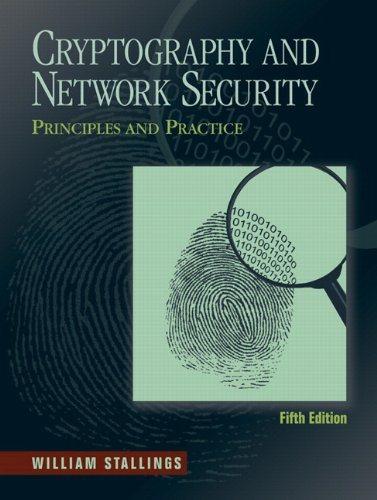a. Let (X^{prime}) be the bitwise complement of (X). Prove that if the complement of the plaintext
Question:
a. Let \(X^{\prime}\) be the bitwise complement of \(X\). Prove that if the complement of the plaintext block is taken and the complement of an encryption key is taken, then the result of DES encryption with these values is the complement of the original ciphertext. That is,
\[
\begin{gathered}
\text { If } \quad Y=\mathrm{E}(K, X) \\
\text { Then } Y^{\prime}=\mathrm{E}\left(K^{\prime}, X^{\prime}ight)
\end{gathered}
\]
Hint: Begin by showing that for any two bit strings of equal length, \(A\) and \(B\), \((A \oplus B)^{\prime}=A^{\prime} \oplus B\).
b. It has been said that a brute-force attack on DES requires searching a key space of \(2^{56}\) keys. Does the result of part (a) change that?
Fantastic news! We've Found the answer you've been seeking!
Step by Step Answer:
Related Book For 

Question Posted:





